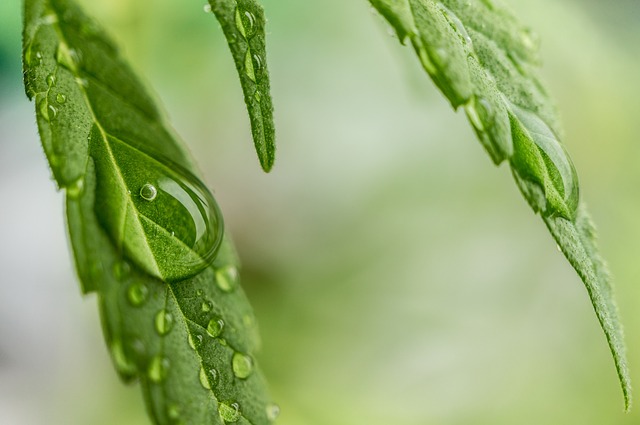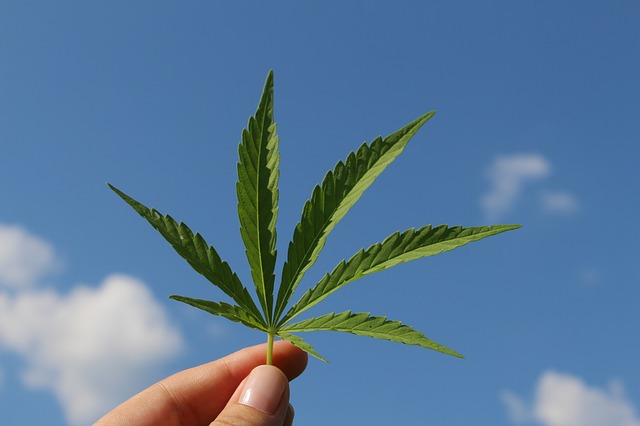CBD is kind of like the hipster of the cannabis world right now. You can find it pretty much everywhere. Call it a CBD-craze but it won’t be craze-less anytime soon, I’m pretty sure it’s here to stay. In fact if you’re at all canna-curious you should know that CBD oil isn’t soaring high solely on the basis of trend, but on the merit of sound scientific research.
To understand why there is suddenly so much focus on a plant that’s been around for so long, it’s important to answer the question: What is CBD oil and what is it good for?

You’ve probably noticed there’s no shortage of things CBD is being added to…want to take the jittery edge off your morning cuppa’ java? Add some CBD oil. How about leveling up your post-workout smoothie with a CBD boost? Or maybe a rejuvenating CBD facial is your jam.
If you’re looking to elevate well being and get your chill on with cannabis, minus the “high” – CBD is where it’s at. At the same time all this business of CBD being touted as some sort of miracle cure can get a little noisy, so I’m here to help cut through the noise and talk about whether CBD oil can really do ALL that.
While CBD is very scientific, with the exception of a few terms there really isn’t any way around using, I’m going to do my best to help connect the dots by addressing the basics like what CBD even stands for, what it actually is, how it works, and what it’s used for – all in the simplest way possible. Kind of like learning your ABCs : )
So first…what does CBD stand for?
CBD is short for the scientific name ‘cannabidiol’ pronounced “can-na-bid-i-ol” – easy enough right?!
What is CBD Oil and How Does it Work?
Cannabidiol (CBD) is a “phytocannabinoid” or naturally occuring plant-derived compound found in the resinous flower of the cannabis plant, a plant with a rich medicinal and therapeutic history. Fun fact: There are over a hundred phytocannabinoids in cannabis, CBD being the second most abundant.
So now that you understand what CBD is, it’s easier to grasp how CBD works in the body. It all starts with this thing we each have called the endocannabinoid system. Endo-whata??? Say that five times fast! Let’s go with the short abbreviation ECS since it’s way easier.
Don’t let the smart scientific name scare you, yes the ECS performs a broad range of processes in the body, but the just of what it does is really very easy to understand. Simply put, the ECS is a regulatory system that plays a crucial role in helping your body achieve a state of balance, or homeostasis. Within this system are compounds naturally produced by your body called “endogenous cannabinoids” or “endocannabinoids.”
CBD to the ECS – What’s it Got to Do With it?

Overall, CBD interacts with many different receptors in your body and also mimicks and elevates the effects of endocannabinoids, making it a key player in influencing so many different physiological processes that affect our everyday experience. These include, our mood, energy level, immunity, intestinal health, blood pressure, glucose metabolism, and how we experience stress, hunger, pain, and more. For example, CBD has been found to directly activate serotonin receptors in the brain, resulting in decreased anxiety and improved mood.
Bottom line: Based on cutting-edge scientific discovery, a dysregulated endocannabinoid system is evident in nearly all pathological conditions (aka disease). If that’s not enough proof that modulating ECS activity (which CBD can help with) is crucially important to overall health and wellness well, dip me in fat and call me a chip!
So we’ve connected the dots from what CBD is to how it acts in the body, but since it comes from the cannabis plant I get that there is a stigma attached. Maybe you’re thinking “But isn’t cannabis marijuana, which also contains THC?” If that’s a concern for you, you defintely don’t want to miss this next section.
Burning Questions: Does CBD Make You High + Is it Legal?
While it’s true that both CBD and THC are secreted by glands in the flowers (or buds) of cannabis plants, the two most popular plants in the cannabis genus are marijuana and its cousin the hemp plant. And while CBD is an essential component of medical marijuana and even has a postitive influence on the effects of THC, CBD is also derived directly from the hemp plant and by itself does not induce a “high.”
While CBD and THC are related they do not have the same effect, they act in different ways on different receptors in the brain and body. Think of it this way: THC dominates marijuana and CBD dominates hemp. CBD oil is made from hemp rather than marijuana. In fact, cannabidiol’s (CBD’s) lack of ability to induce intoxicating effects led scientists to originally believe that it was an inactive compound, until they discovered otherwise.
If you’re one of the people who want to take advantage of the numerous benefits of cannabis, minus the high, CBD offers the ideal solution, especially in an easy to take oil.
But is CBD legal? Thanks to the 2018 Farm Bill, CBD and CBD oil made from industrial hemp plants with less than 0.3% THC is legal in all 50 states in the U.S. As a result, many states are now growing acres and acres of hemp – a beautiful sustainable plant with tons of wonderful uses and therapeutic benefits. CBD is also legal in several other countries but don’t take my word for it, do your own research to be sure.
Congratulations for making it this far, you must be serious about learning your CBDs! Now let’s connect the last dot.
Can CBD Really Do ALL That?
Scientists and doctors around the world are fascinated with phytocannabinoids that make up the unique profile of the one-of-a-kind hemp plant. This excitement along with tested and confirmed therapeutic benefits, including the discovery that CBD initiates multiple actions in the central nervous system, show no signs of losing momentum anytime soon.
At this point there really isn’t much debate over whether CBD has merit as an herbal medicine, the real debate is whether it can live up to the reputation of a cure-all. It is a molecule not a miracle, after all. Like anything CBD can’t possibly do everything but there is an awful lot it is good for, and the proof is in the research.
Watch this informative video of a doctor explaining the science of CBD.
What is CBD Oil Good For? No Hype, Just Results
Relief of anxiety, depression, chronic pain, and inflammation really just scratch the surface of what CBD is good for. While not inclusive, the following are a wide range of conditions that CBD could be helpful for, based on scientific and anecdotal evidence. For a helpful compilation of peer-reviewed articles in scientific journals click here to search by condition for what CBD may help.
- Epilepsy
- Neuropathic pain
- Traumatic brain injury
- PTSD
- Addiction
- Sleep Conditons
- Nausea
- Cardiovascular dysfunction
- Metabolic syndrome
- Automimmune conditions
- Gut disorders
- Bone health
- Skin conditions including acne, dermatitis, and psoriasis
Final Thoughts
Well, hey there CBD afficianado! C to the B to the D is where it’s at. When it comes to the ancient healing wisdom in natures garden, hemp-derived CBD has the potential to benefit a healthy lifestyle and support overall wellness in a monumental way. Fortunately, high quality CBD products are now available to the conscientious consumer.
Ready to start your CBD oil journey? Discover my absolute favorite superior quality CBD here!
Have you tried CBD and what was your experience? Drop a comment below!
